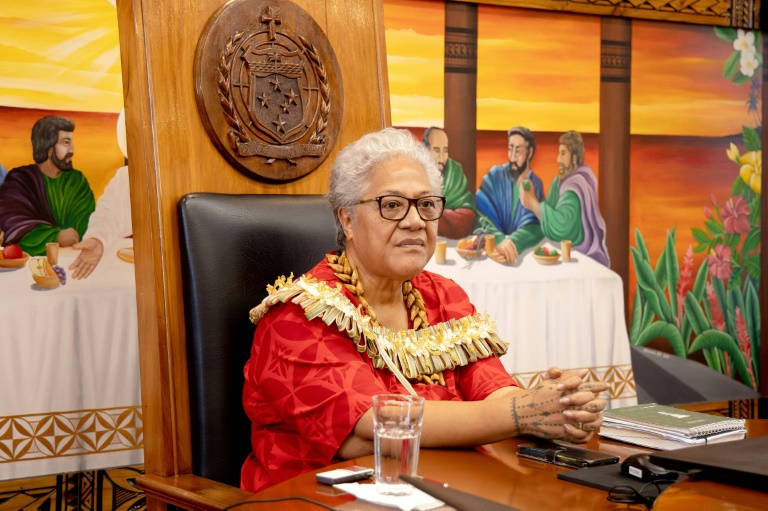Fiame Naomi Mata’afa entered parliament as Samoa’s first female prime minister Tuesday, ending a bitter impasse that left the Pacific island without an effective government for 109 days after her election victory.
Following several abortive legal challenges, outgoing leader Tuilaepa Sa’ilele Malielegaoi finally conceded defeat on Monday, allowing Mata’afa and her fledgling cabinet to move into their parliamentary offices.
“I am pleased and thankful,” Mata’afa said, listing an interim budget as her immediate priority to keep the government running and give her cabinet time to review Samoa’s financial and economic circumstances.
But she told Radio New Zealand the preparations had not been smooth going.
“We had approached key ministries… in terms of preparing briefs for an incoming government. They weren’t very responsive,” she said.
“I would presume now that the issue has been settled about the validity of our government, they will come on board.”
A key issue will be Samoa’s future relationship with China, with Mata’afa opposed to a Beijing-bankrolled major port project approved by her predecessor.
The 76-year-old Malielegaoi, who had ruled almost unopposed for more than two decades with his Human Rights Protection Party in power for nearly 40 years, strongly rejected his defeat in the April 9 election.
In bizarre scenes, Mata’afa had to be sworn in as the new leader in a tent in May after he locked the doors of parliament.
The constitutional crisis came to an end four days ago when the Appeal Court, Samoa’s top judicial body, ruled that Malielegaoi’s actions were unlawful.
Mata’afa believed the three-month impasse had damaged Samoa’s reputation as a democracy.
“Some of the illegal actions taken by the last government, which the courts have said were unlawful, is a demonstration of the government moving away from the rule of law,” she said.
“So I think the overall view that we have to restore the foundation of the rule of law for the government is a very important thing.”
Her FAST Party was formed just last year.
Only Mata’afa, a former cabinet minister and deputy prime minister under Malielegaoi, and La’auli Leuatea Schmidt who was once briefly agriculture minister have previous cabinet experience.











